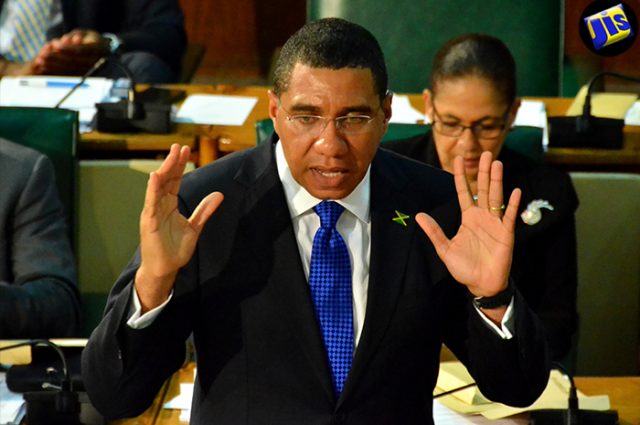JIS: The Government is looking at implementing legislation to make it illegal for children to be barred or denied access to education, particularly at the secondary level.
This was disclosed by Prime Minister, the Most Hon. Andrew Holness, during the July 26 sitting of the House of Representatives.
He informed that access to education is not defined as a right in the Charter of Rights, but noted that the Education Regulations and Child Care Protection Act place an obligation on the State to provide access to educational opportunities.
“As a matter of policy and law, therefore, Jamaican children are entitled to freely access public education up to age 18 and should be attached to an institution up to that age. If this then is the law, policy and social consensus, then no Jamaican child seeking to access publicly provided education should in any way be discriminated against, barred from or denied access to education,” he argued.
The Prime Minister said he has directed the Minister of Education, Youth and Information to examine the existing legislation with a view to make it illegal for any child to be denied a right to secondary education.
He said the Government has kept its commitment to the removal of auxiliary fees, and has increased funding to high schools from $2.6 billion to $5.3 billion.
“In keeping with these commitments, the first disbursement of monies has been deposited to all secondary schools’ accounts since the second week of June for the process of preparing for the upcoming academic year, a first in the history of Jamaica’s education system,” he said.
He noted that the disbursement of funds represents an increase from the previous $11,500 to a maximum of $19,000 per student and, as such, will provide additional support to the institutions.
Mr. Holness said the Government acknowledges that parents play a critical role in supporting schools and has implemented guidelines for non-mandatory contribution.
“Therefore, parents are supporting co-curricular, sports and special school development initiatives. Parents can make full or partial contributions as they can afford. Whether traditional or non-traditional schools; contributions are optional and students cannot be denied access to attend school, services or classes,” he pointed out.
He urged stakeholders to partner with schools in order to ensure that the quality of education continues to improve even as the Government deepens its support for institutions.
“The removal of auxiliary fees is… not a forced promise but a reiteration of this Administration’s commitment to ensuring that every child can learn; every child must learn, through the provision of equitable access to core educational resources,” the Prime Minister said.
CAPTION:
Prime Minister the Most Hon. Andrew Holness addressing the July 26 sitting of the House of Representatives


